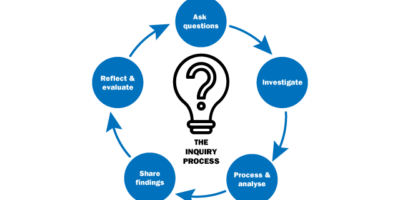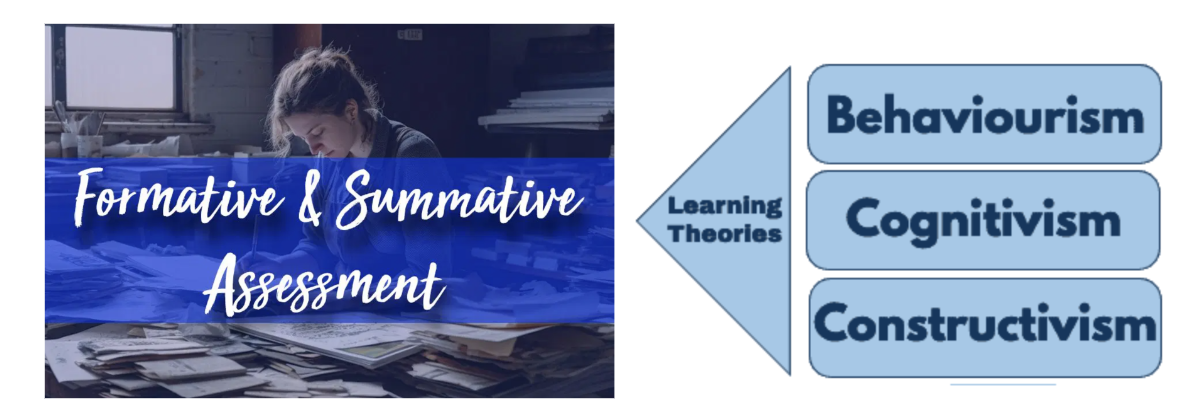Comment on Kate Chan’s Blog Post:
Hi Kate, Thank you for sharing your blog.
In your blog, you have fully reflected on the difference between formative assessment and summative assessment and used some practical examples, such as “blog posts, group projects” are types of formative assessment, and also mentioned the reasons why this lesson is not a summative assessment, such as the lack of a “high-stakes final exam” to judge students’ performance. In addition, you have combined formative assessment with the three learning theories we learned in Week 1 to make your content more precise and more prosperous for the reader.
As a student, I believe that Behaviorism, cognitivism, and constructivism are all essential learning theories that can contribute to an efficient learning process and improve our learning ability, and that different courses have their appropriate learning theories. Besides, when using these strategies, I think it is important to consider the learner’s level of knowledge, the audience’s way of thinking and processing, and the desired outcomes of the course, which can also help in choosing the most appropriate learning theories.
Comment on @mohammedazimharis’s Blog Post:
Hi, I enjoyed your introduction and overview of Cooperative Learning. As a reader, I can understand how you interrelate the Cooperative Learning concept and its application in Alzheimer’s education through multiple perspectives and aspects, for example, by dividing students into small groups for discussion, thus developing their sense of responsibility, interdependence and social skills. Appropriate promotive interactions, where students can share their opinions and deepen their understanding, are evidence of the integration of Cooperative Learning and Alzheimer’s education.
I look forward to seeing the final content of your group’s Alzheimer’s Interactive Learning Resource, which I’m sure will be informative and interesting! Thanks for sharing your blog.
Comment on @jungjooyoon’s Blog Post:
Hi, thanks for sharing. After reading your blog, I can get a clear and comprehensive understanding of the concept of Direct Instruction, its features, and how it can be combined with your topic, “Application to Wearable Devices in Healthcare.” I believe that Direct Instruction is very effective for your topic because the application of wearable devices in healthcare requires specialized and specific steps and knowledge. Through Direct Instruction, including demonstration, practice, assessment and feedback, students can strengthen their knowledge and understanding to master this skill. It is a great blog to read, thank you.
Comment on Kate’s Blog Post:
Hi Kate,
Thank you for sharing your blog.
In your blog, you talk about your personal experience of feeling excluded in calculus class as a beginner due to the rapid pace of instruction, and I like that you share several ways to address these barriers and difficulties so that you or other students who are new to calculus can feel as inclusive as possible. This aligns with the concept of inclusive design of learning environments, where designers should focus on reducing barriers for learners and working together to provide scaffolding and timely support.
I also mentioned in my blog the idea of moving instruction from offline to online using Zoom in the event of unforeseen circumstances, such as a pandemic. You noted that having each group summarize the results of their discussion and report back to the class is an excellent thought. If students could use the whiteboard feature in Zoom, they could organize, structure and visualize the ideas, and make the discussion more interesting and engaging; what do you think?
Comment on Sophie’s Blog Post:
Hi,
Thank you for sharing the excellent video and interesting list of activities! The video was indeed concise and captivating. It caught my attention from the beginning to the end by delivering meaningful and thought-provoking content without being boring at any point. It made me understand better why exercise is essential in boosting learning and cognitive abilities.
On top of that, your learning activities are rich in scope and depth; they have open-ended questions, quizzes and summaries, which appear pretty comprehensive. However, I have a concern: considering their variety and complexity, do you think these tasks probably a bit overwhelm learners and instructors? Explicitly speaking, open-ended questions and summaries require more thinking, writing, peer feedback, and interaction with the instructor. How do you manage the timing and workload to keep them manageable?
Overall, you did an excellent job combining theoretical support with practical advice to improve educational outcomes effectively. Thank you for sharing your post.







Leave a Reply